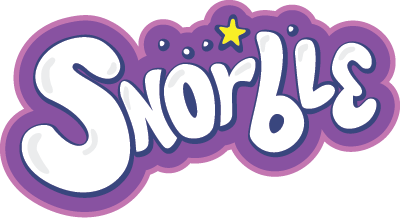Not to be confused with sel, the French word for salt, SEL stands for social-emotional learning and there is nothing salty about it. Social-emotional learning is the process of acquiring and combining the knowledge, skills, and attitudes needed to develop healthy identities. Moreover, SEL helps children manage their emotions, show empathy towards others, establish and nurture supportive relationships, and make responsible decisions without sacrificing their morals and those of others.
How can parents and caregivers ensure their youngsters are getting their daily dose of SEL and how can our smart companion, Snorble®, provide a launchpad for social-emotional development? More on that later, but first, what are the outcomes of SEL?
The benefits of SEL: when children thrive by trusting themselves
When children can utilize the basics of SEL in their everyday lives, they’re more likely to be inclusive and trustworthy. The Collaborative for Academic, Social, and Emotional Learning (CASEL), an organization dedicated to providing students (PreK-12th grade) and educators positive outcomes through SEL, denotes five main competencies that lead to benefits:
- Self-awareness: SEL helps children recognize their emotions and how they impact behaviors. In doing so, kiddos can acknowledge their strengths and weaknesses to enable them to be more confident.
- Self-management: Through SEL, children are able to take control and ownership of their thoughts, emotions, and actions in any situation. Plus, when you’re able to own your thoughts, emotions, and actions, you can work towards achieving your goals without distraction.
- Social awareness: Through SEL, your little one will gain the ability to put themselves in someone else’s shoes. Instead of fearing the unknown, when they meet and interact with kids from diverse backgrounds, they’ll be accepting and eager to learn about cultures different from their own. For children, learning about what makes people different whether it’s culturally or medically allows them to not only understand their privilege (if applicable) but also be more compassionate and empathetic.
- Relationship skills: Listening and being able to communicate with others is an important part of any child’s development. Imagine a world without temper tantrums before bed. Okay, that’s a stretch because some kiddos aren’t sold on sleep and need a smart companion like Snorble to give them a boost into dreamland (more on that in a bit), but through SEL, children gain the ability to build healthy relationships. When we learn to listen and focus, we’re able to communicate effectively and peacefully resolve conflict. In addition, SEL shows youngsters that asking for help isn’t a bad thing. And when you learn that it’s good to ask for help, you also learn when to offer help. It’s a win-win!
- Responsible decision-making: Social-emotional learning encourages children to make responsible decisions that consider their well-being and the well-being of others. When kiddos learn to make decisions by weighing consequences, ethics, and safety, they are equipped with valuable skills that can enhance their development like mindfulness.
Let’s get meta about SEL
A meta-analysis of data compiled from 213 studies (one of which is found here) with over 270,000 participating students found the following:
- When children are taught the five core components of SEL as aforementioned, their academic performance increased by 11 percentile points compared to kids who didn’t get SEL training.
- Students who participated in SEL programs showed improved performance in classroom settings and possessed an increased ability to manage depression and stress. Additionally, these same children felt better about themselves, others, and even going to school. We can’t say for certain if chants of “I don’t wanna go to schoooool!” ceased completely with these kiddos, but their chants may now contain fewer o’s when drawing out the vowels in the word “school.”
- If the majority of children receive social-emotional learning support, it’s estimated that 27% more students would improve their academic performance and social behaviors, and lower their stress levels.
- SEL helps quash negative behaviors like bullying by 95%. Also, educators claimed that SEL promotes motivation and engagement in learning by 94%, creates safer schools (93%), and boosts teacher-student relationships where kids are excited to learn and be in the classroom or remote learning settings (91%).
SELebrate your children’s accSELeration with Snorble
We may be reaching with that heading, but Snorble is a smart companion designed to guide children through their social-emotional development, instill healthy habits, and prepare them to thrive in academic settings. With educational games, SEL activities, mindfulness and relaxation exercises, and a customizable bedtime routine complete with soothing soundscapes, your little one will have everything they need to exSEL. We’re done SELling Snorble now. Promise!
Photo by Jerry Wang on Unsplash


